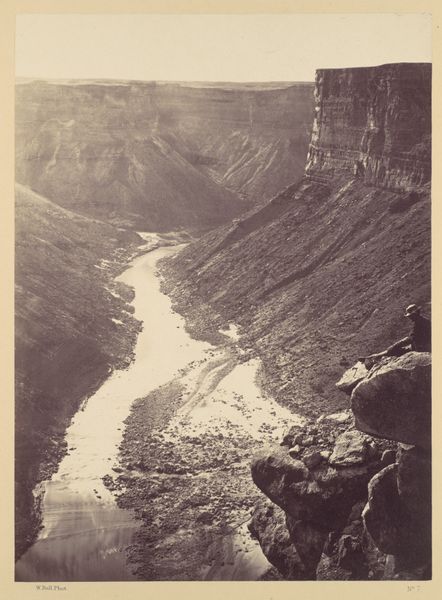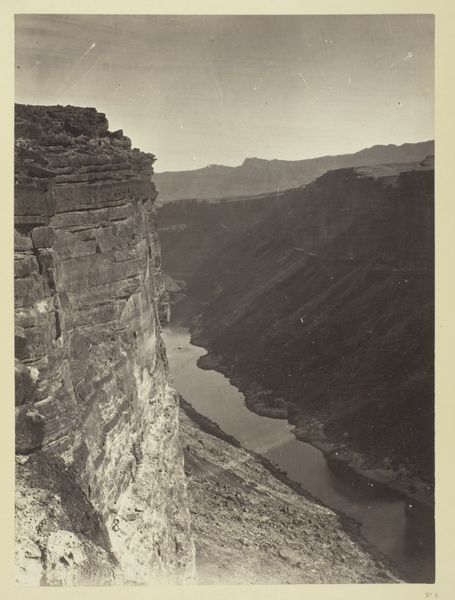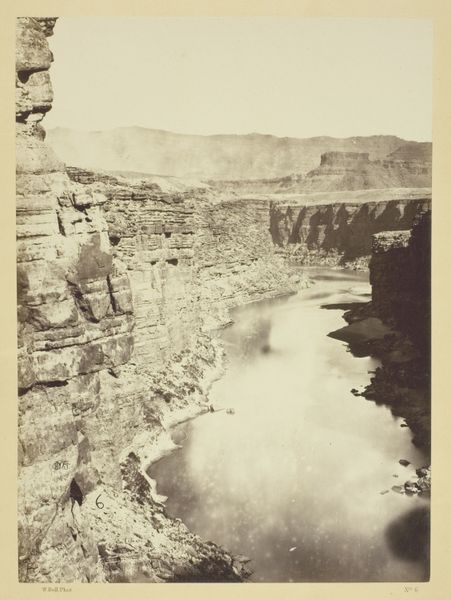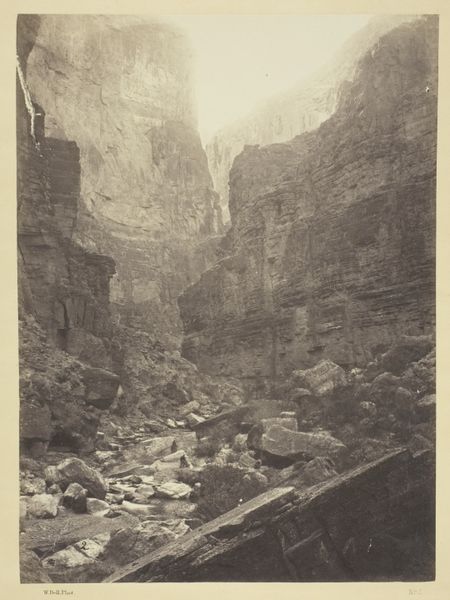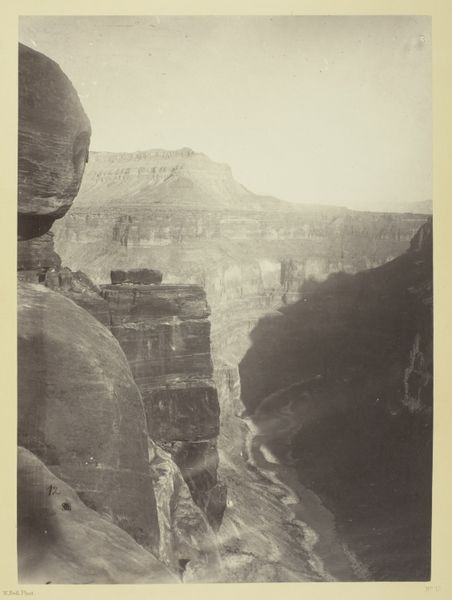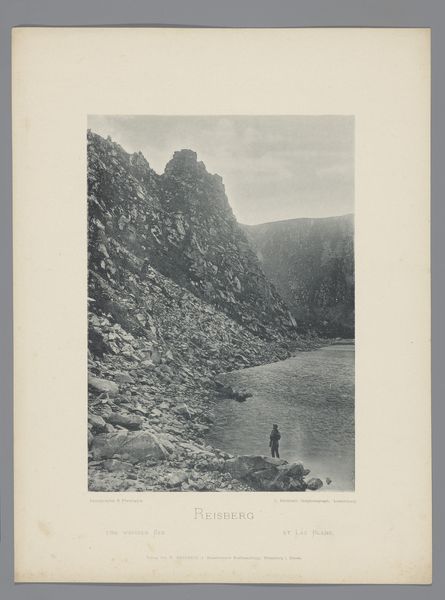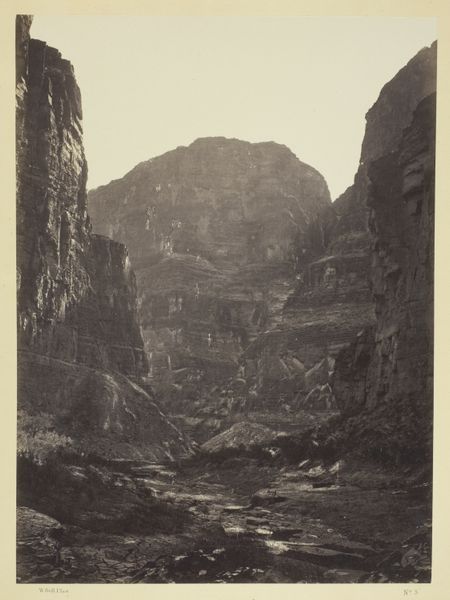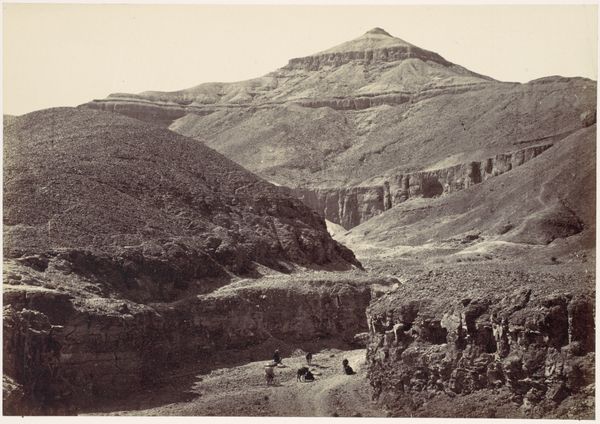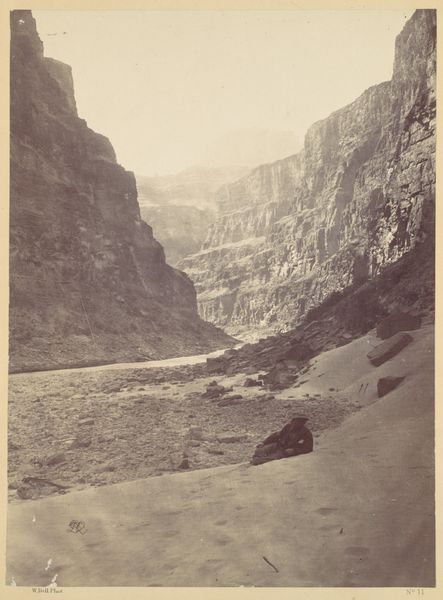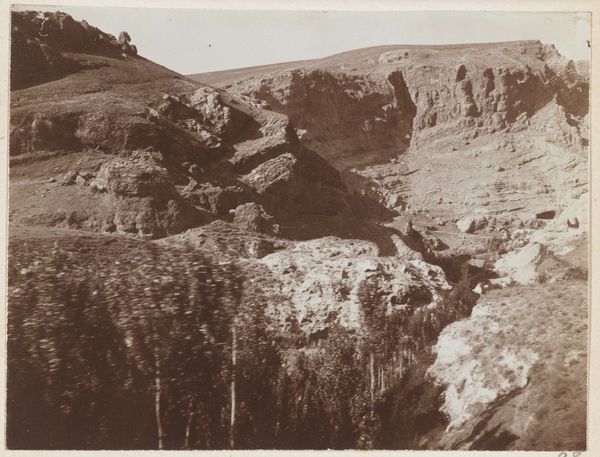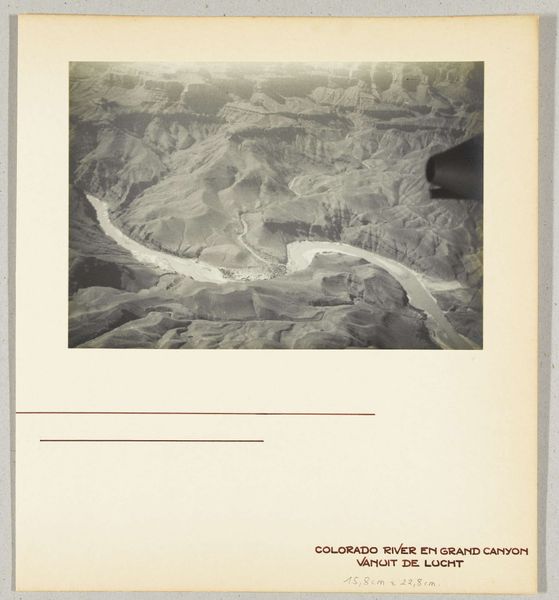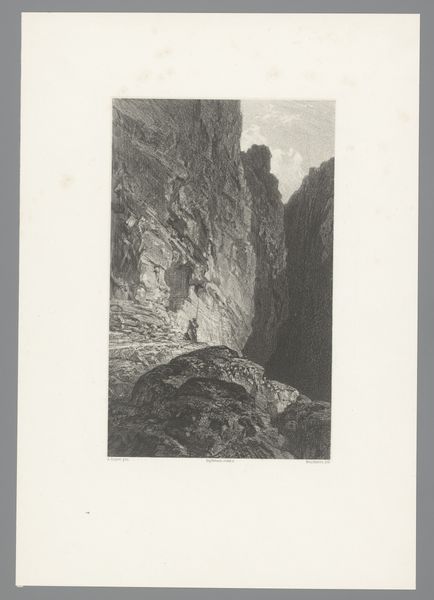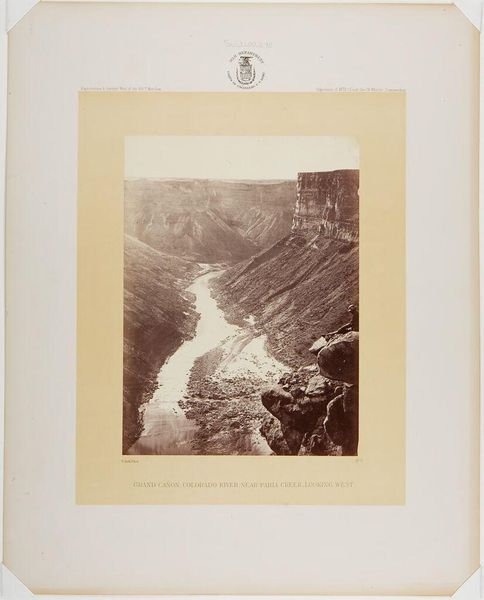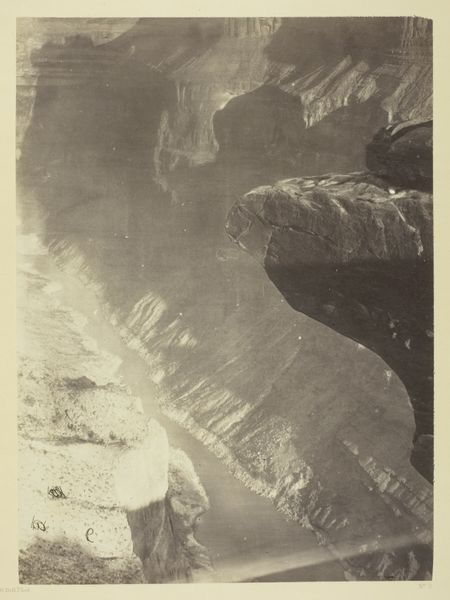
Grand Cañon of the Colorado River, Mouth of Kanab Wash, Looking West 1872
0:00
0:00
print, photography, albumen-print
#
16_19th-century
# print
#
landscape
#
photography
#
hudson-river-school
#
men
#
united-states
#
albumen-print
Dimensions: 27.3 × 20.1 cm (image/paper); 49.8 × 38.3 cm (album page)
Copyright: Public Domain
Editor: So, this is William Bell's "Grand Cañon of the Colorado River, Mouth of Kanab Wash, Looking West," an albumen print from 1872. It strikes me as both majestic and desolate. The vastness is awe-inspiring, but the landscape also seems harsh, almost unwelcoming. What's your take? Curator: It’s an evocative image, isn't it? The stark beauty of the Grand Canyon is undeniable. I see it as a complex representation of Manifest Destiny and the colonial gaze. The presence of men within the landscape – tiny, almost insignificant – prompts questions about their role, their power, and their impact on this environment. What narratives are being constructed here, and whose voices are amplified or silenced? Editor: Narratives of power, interesting! The men really do look small. So, how does this fit into larger historical discussions? Curator: Think about the context: the late 19th century, a period of westward expansion fueled by ideas of American exceptionalism and resource exploitation. These photographs were often used to promote the idea of an empty, unpopulated wilderness, ready to be “tamed” and exploited. This, of course, conveniently ignored the presence and rights of Indigenous communities who had lived in and stewarded these lands for millennia. It’s about dispossession and the construction of a national identity rooted in control over nature. Editor: So, this image, beautiful as it is, played a part in that? Curator: Precisely. These landscapes were weaponized as tools for colonial narratives, and this photography provided "evidence." Considering this is key to challenging dominant historical viewpoints. It makes us think critically about the intersection of art, power, and social justice. Editor: Wow, I’ll never look at landscape photography the same way again. Curator: And hopefully, that's the beginning of a more nuanced and critical engagement with the world around us.
Comments
No comments
Be the first to comment and join the conversation on the ultimate creative platform.
